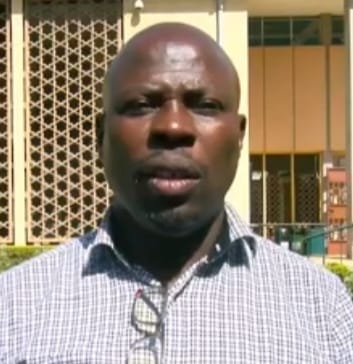Fresh claims have emerged against Mwananchi Credit Limited, with employees alleging that the company has failed to pay their salaries, adding to growing concerns over its financial stability and internal management woes.

Workers allege that salaries, which were due on 22nd March 2025, remain unpaid, further deepening frustrations following the recent mass layoffs that left more than 200 employees jobless.
The situation appears to be worsening, with reports indicating that Direct Sales Representatives (DSRs) have also not received their retainers for February.
The delays have thrown employees into uncertainty, with many now struggling to meet their financial obligations as they await communication from the company.
“Good afternoon Nyakundi. I am writing to bring to your attention some pressing issues regarding salary payments. Mwananchi Credit has refused to pay us our salaries for March, which were due on the 22nd. DSR has not received their retainers from February. Those handling checkoff loans were sent home without notice. It appears that this may be a strategy to avoid paying pending commissions and salaries owed to them. Mwananchi credit is collapsing. Please warn people out there,” the latest source wrote to us on Tuesday.
These new revelations come in the wake of Mwananchi Credit’s abrupt dismissal of its entire check-off sales team without prior notice.
The terminations, which reportedly affected sales representatives, team leaders, and regional sales managers, were linked to a dispute over unpaid earnings.
Mass Layoffs at Mwananchi Credit Spark Outrage as Workers Claim Unpaid Dues
The latest allegations suggest that these layoffs may have been a strategic move to avoid paying commissions and pending salaries to those who had already worked under the check-off programme.
This growing pattern of non-payment has raised speculation about Mwananchi Credit’s financial health.
The institution, which has built its reputation around providing fast loans through salary check-offs and logbook financing, is now under scrutiny for its labour practices and alleged failure to meet its financial obligations to employees.
The ripple effects of these developments are far-reaching, particularly for former employees who had been depending on their earnings to sustain their livelihoods.
The mass layoffs and salary delays have compounded anxieties among workers, many of whom are struggling with bills, rent, and family responsibilities.
There is growing concern that Mwananchi Credit’s financial struggles may be deeper than initially perceived.
If an institution that provides loans to thousands of Kenyans is now allegedly failing to pay its own employees, questions are being raised about the sustainability of its operations and whether it can continue to function under these circumstances.
The unfolding crisis has left many employees in limbo, with no clear communication from the company regarding when they can expect to receive their salaries.
While some are weighing their legal options, others are pressing for immediate government intervention to ensure that their rightful earnings are paid.
With workers in distress and complaints mounting, Mwananchi Credit is now under the spotlight and the latest allegations of withheld salaries only add to the concerns surrounding its business practices.






































